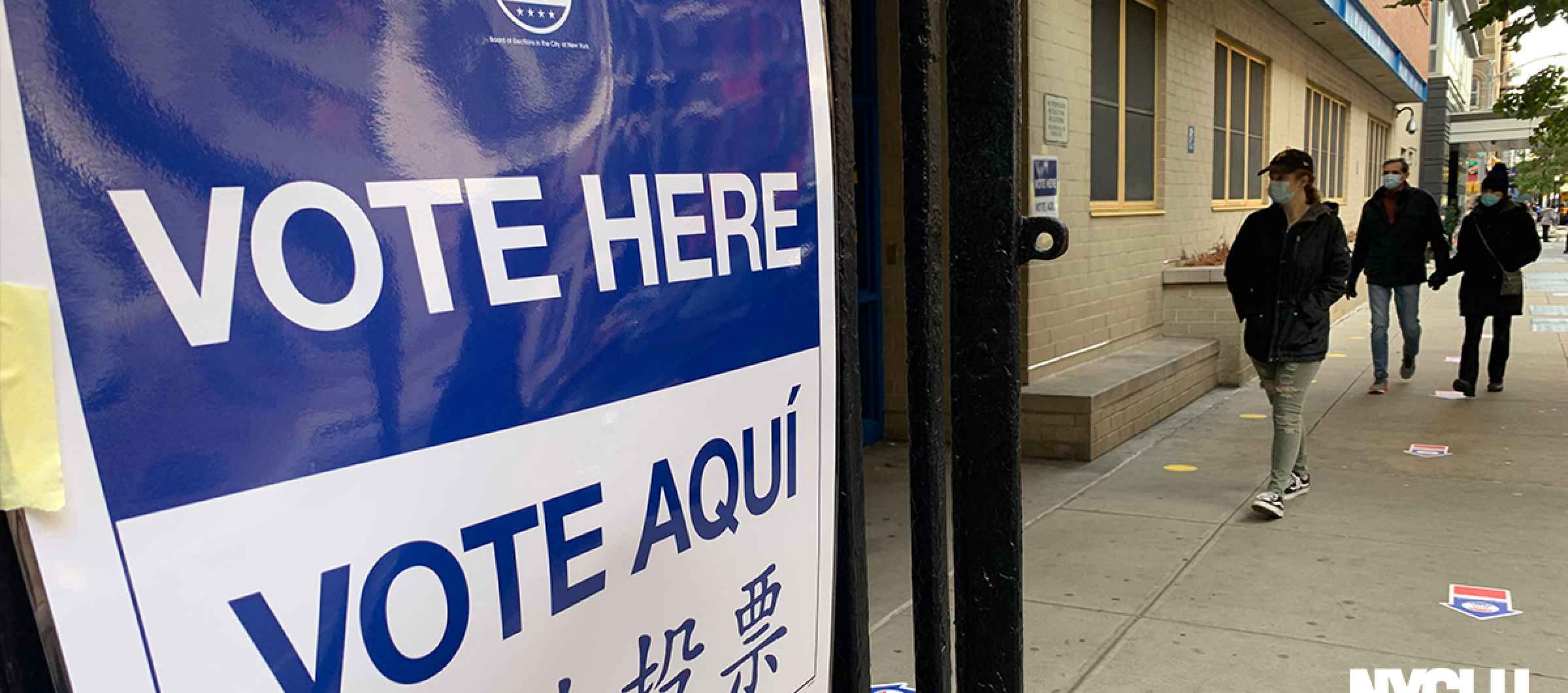
New York Communities for Change v. Nassau County
What's at Stake
Voters of color in Nassau County, N.Y., are no strangers to having to organize to ensure their votes count. But in 2023, the county’s Legislature took vote dilution to new heights. In places like Elmont, Freeport, Inwood, Lakeview, South Valley Stream, New Hyde Park, and Uniondale, the Legislature “cracked and packed” communities of color with the effect of squashing their growing electoral power. But the landmark John R. Lewis Voting Rights Act of New York (NYVRA), enacted in 2022, and the New York Municipal Home Rule Law prohibit New York State and localities from diluting the voting strength and political influence of Black, Latino, and Asian residents.
Stay informed about our latest work in the courts.
By completing this form, I agree to receive occasional emails per the terms of the ACLU's privacy statement.
Summary
This case concerns recently enacted state laws in New York that protect voters and prohibit discriminatory redistricting: the John R. Lewis Voting Rights Act of New York (NYVRA), which expands upon the federal Voting Rights Act’s protections against racial vote dilution, and Section 34 of the New York Municipal Home Rule Law (MHRL), which prescribes a range of criteria for county-level redistricting, including prohibitions on racial discrimination and partisan gerrymandering. In 2023, Nassau County put in place a redistricting map for the County’s legislative districts that dilutes the electoral power of Black, Latino, and Asian voters and advantages the Republican party. On behalf of voters of color in Nassau County, the ACLU, NYCLU, LatinoJustice PRLDEF, AALDEF, and Steptoe LLP sued under the NYVRA and MHRL to enjoin use of this discriminatory map and replace it with one that respects the voting rights of the County’s communities of color and does not favor any political party.
Nassau County is a racially diverse county where Black, Latino, and Asian residents make up almost one-half of the total population and more than one-third of the population of eligible voters. Yet the 2023 Map contains only four legislative districts out of nineteen in which voters of color constitute a majority of eligible voters. The Map achieves this vote dilution by “packing” voters of color in high concentrations in certain districts while “cracking” them—or splitting them up—among other districts to reduce their ability to elect their preferred candidates. The evidence indicates that a non-dilutive map would have provided six districts in which Black, Latino, and Asian voters constituted a majority of eligible voters. It would also have kept whole a large, compact Asian community in western Nassau County instead of cracking it across three separate districts like the 2023 Map does. During the redistricting process, numerous residents testified to the Nassau County Legislature that in districts where voters of color are not able to elect their preferred candidates, the elected legislators are not responsive to their needs.
The evidence also shows that the 2023 Map is configured to give the Republican party an advantage in securing majority control of the Legislature. What is more, the Map was developed in a one-sided, partisan process that excluded meaningful input from Democratic legislators and the public, whose repeated pleas to see information and analyses about whether the Map was fair were rejected.
The defendants moved for summary judgment in October 2024, arguing, among other things, that the NYVRA is facially unconstitutional because it assigns benefits and burdens based on individual racial classifications. On December 6, 2024, the trial court denied the defendants’ summary-judgment motion, holding that the NYVRA is not unconstitutional on its face. The court reasoned that the NYVRA “seeks to protect all voters from racial discrimination in voting” by “provid[ing] equal opportunity in voting,” not by requiring any “race-based preference.” The court also affirmed that “[t]here is no rule that a state legislature can never extend civil rights beyond what Congress has provided.”
On January 23, 2025, the parties resolved the lawsuit by means of a consent judgment and decree. The settlement -- the first of its kind under the New York Municipal Home Rule Law and New York Voting Rights Act -- secures fair maps for Nassau County voters, replacing Nassau County's current legislative map with a politically fair map that also includes six districts in which voters of color constitute a majority of eligible voters, with an additional district that corrects the previous dilution of Asian voting influence.
Legal Documents
Press Releases
Landmark Settlement Secures Fair Voting Maps in Nassau County
Civil Rights Advocates Sue in Nassau County For Racial Vote Dilution
NYCLU & Advocates Alert Nassau County of First Possible NYVRA Redistricting Challenge